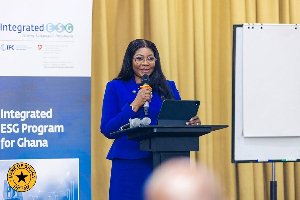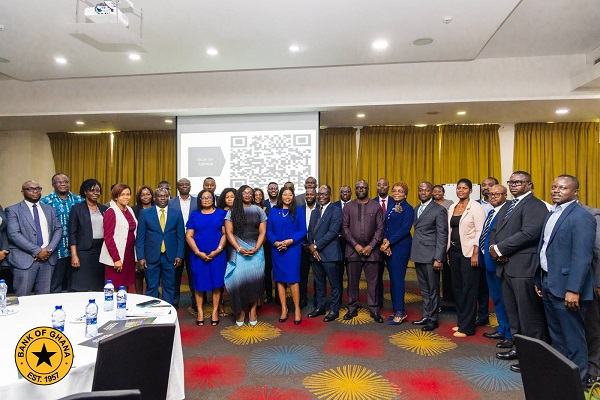 Matilda Asante-Asiedu is Second Deputy BoG Governor
Matilda Asante-Asiedu is Second Deputy BoG Governor
The Bank of Ghana is ramping up pressure on banks to factor environmental and climate-related risks into their credit decisions, particularly in high-risk sectors such as construction.
Speaking at a sector-focused event on the Ghana Sustainable Banking Principles (GSBPs) on July 29, 2025, Second Deputy Governor Matilda Asante-Asiedu cautioned that the construction industry represents a critical intersection between environmental sustainability and financial risk.
“A bank financing a large real estate project may focus on the traditional 7 Cs of credit risk. But what happens when permits are delayed due to environmental non-compliance, or rising temperatures push costs beyond projections?” she asked.
“These are no longer hypothetical; they are now part of the risk landscape,” Asante-Asiedu added.
She noted that the BoG launched the GSBPs in 2019 to integrate ESG considerations into banking operations and added that compliance has steadily improved from 42% in 2021 to over 73% as of March 2025.
“We must move away from viewing ESG as a PR exercise or feel-good reporting. It is the framework for long-term resilience. How institutions govern themselves, manage their footprint, and treat communities must now be central to financial decision-making,” she stressed.
The BoG has also issued a Climate-Related Financial Risk Directive, requiring all banks to integrate climate risk into governance and risk management structures by January 2026. A newly established Climate and Sustainability Office within the central bank will lead this implementation.
“ESG factors are rapidly reshaping how we understand banking sector risks. The banking sector must remain at the forefront of this evolution,” Asante-Asiedu emphasised.
She also acknowledged the support of key partners such as the International Finance Corporation (IFC), Environmental Protection Agency (EPA), and the Ghana Association of Banks (GAB).
“Let’s have frank discussions, be innovative, and align risk management with sustainable banking practices,” she urged.
The construction sector deep dive follows similar engagements with the agriculture and manufacturing sectors in 2024. The initiative aims to help banks identify and proactively manage ESG risks specific to each industry.

MA
